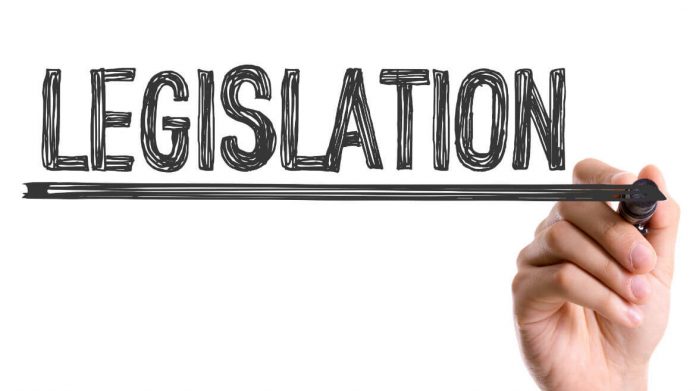This article is written by Ojasvi Gupta, a student of the Faculty of Law, Banaras Hindu University. It is centred on the recently proposed acts by the European Union, the DSA, and the DMA. It covers what was the need for these legislations and what are the parallel legislations that govern the digital market economy in India.
Table of Contents
Introduction
The European Union has proposed two legislative initiatives to upgrade the rules that aim to govern the market of digital services in the EU. These are being observed and analyzed all around the world as their successful enactment of these may pave the way for international regulations of the market of digital services that reduce the nations and states into a global village.
Need for new rules under the EU regulations
The rapid and widespread development of digital services is no news to us. The Fourth Industrial Revolution has been at the heart of the digital changes that impact our lives. Ways of communication, accessing information, shopping, etc are constantly evolving and the legislation concerning them needs to keep with the pace. For this very reason, a comprehensive regulation for the digital players was required.
Online platforms have created a multitude of benefits for consumers and companies and helped the European Union’s internal market become more efficient. This has opened new opportunities to a variety of European businesses and traders by facilitating their expansion and access to new consumer groups and markets. There is a broad agreement on the advantages of this transformation and an even broader one on the problems arising out of it, both for the economy as well as the society.
The core concern is the trade and exchange of illegal goods, services, and content online. Online services can also be misused by manipulative algorithmic systems to amplify the spread of disinformation or other malevolent purposes. These new challenges and the way in which platforms address them create a significant impact on fundamental rights online. This digital regulatory bundle of the two Acts provides a range of targeted, sector-specific interventions at the EU level, addressing significant legal gaps and burdens.
Another issue that begets concern at an international level is the accelerating pace of digitalisation which has resulted in the control being left in the hands of a few powerful platforms of the digital ecosystem. They have been emerging as gatekeepers in digital markets, with their potential as monopolies culminating gradually as private rule-makers. These rules sometimes result in unfair conditions for small or new businesses using these platforms and lessen the extent of the right to choose for consumers.
With these developments in mind, Europe required a modern legal framework that ensures the safety of users online, establishes governance with the protection of fundamental rights at its forefront, and maintains a fair and competitive online platform environment
EU regulations and their applicability
The European Union is a political entity comprising 27 nations (the United Kingdom was the 28th nation but it exited last year). This organization was established to voluntarily decide on common interests at the supra-national level. Based on the rule of law, the EU takes all its decisions through treaties (known as primary legislation), not all of which are binding. The treaties set out the specific subject which requires governance and legislation, known as EU competencies. The aims and objectives of the treaties are achieved through several types of legal acts (called secondary legislation) such as regulations, directives, and recommendations.
Article 288 of the Treaty on the Functioning of the European Union (TFEU) states that regulation has general application and binds all member states for direct application in its entirety. For instance, the EU Regulation on Common Rules of Imports. Here, the direct application refers to the fact that once a regulation is passed, it instantly becomes applicable in all the Member States. Thus, unlike derivatives, regulations do not require additional legislative acts from each national parliament to transpose the law stated in the regulation.
EU Regulations are also directly effective, both horizontally as well as vertically. The vertical direct effect allows the use of the regulation against a Member State. The horizontal direct effect refers to the imposition of the concerned regulation against another individual.
Regulations are detailed legal rules having the force of law. If it’s observed that a country is not implementing or abiding by a regulation, the European Union Commission may launch an infringement procedure against it. The matter may be referred to the European Court of Justice eventually, on the further violation.
The Digital Services Act
The Digital Services Act is one part of the combined regulatory package proposed by the EU Commission on December 15, 2020. Along with the Digital Market Act, it provides a much-anticipated set of rules to regulate digital platforms. It provides a clear legal framework across the EU, strengthening legal certainty and easing compliance for all stakeholders involved, consumers and businesses alike.
Digital services comprise a large category of online services and intermediaries not limited to online marketplaces, social networks, content-sharing platforms, app stores, and online travel and accommodation platforms. All in all, the DSA aims to improve the process of content moderation and regularization on these platforms in a variety of ways.
This shows that the DSA represents a strong shift from previous regulatory approaches established in the EU as well as the US. Only a few years ago, the Commission was wary of imposing any binding rules on platforms and had been able to develop a voluntary code on disinformation for its purpose. Now, with the DSA, the Commission aims to define binding rules and to sanction their violations.
The Digital Markets Act
The DMA enables consumers and companies to make decisions and compete on fair terms. This will bring about easy access to a multitude of products and services to the benefit of all. The DMA aims to reduce the harm of concentrated digital markets by making them easier to enter and by limiting the ability of players in these concentrated markets to influence other players, mainly the new and local startups.
It introduces the concept of ‘gatekeepers’ – which are large digital platforms having more than 45 million users in the EU. Owing to their size and consumer reach, these giants play a significant role in the digital economy. Facebook, Twitter, and Youtube are some of the well-known examples. Nowadays, these uncontested digital giants can set the rules of the game to their liking, for instance by self-preferencing their services and products or forcing companies to conduct business on their platform only.
The main objective of the Act is to restore fairness and contestability in digital markets where so-called ‘gatekeepers’ are present. It does so by establishing directly enforceable obligations that gatekeepers will need to implement in their daily operations to ensure fair and contestable digital markets. For example, the DMA prohibits gatekeepers from blocking users from uninstalling software or apps and obliges gatekeepers to enable the software of third parties to properly function with their services.
The Regulation may also include a platform that does not cross the threshold if it generates substantial revenues. The European Commission can initiate a market investigation to designate a platform as a gatekeeper based on additional considerations, such as user lock-in or network effects. Another major change in the DMA is that the rules render the practices illegal without requiring a lengthy investigation.
Implications and impact of the Acts
- Once effective, the legislation introduces obligations on the part of the media platforms to disclose data to the regulators regarding the algorithms being used to moderate and remove content.
- The online platforms will now have to give complete, unambiguous information regarding any advertisements made on their platform, such as
- whether the users are seeing an advertisement at the given point of time,
- on whose behalf the ad is displayed, and
- provide accurate information about the main parameters used to determine why a specific user is targeted by this ad.
- Companies providing digital services will be responsible for ensuring users’ safety and trust, tackling online harm, and guaranteeing respect for fundamental rights in a transparent manner.
- The users and the consumers will easily have the ability to challenge content removal decisions, access methods of redressal for incorrect content removal, and be aware of the content moderation rules.
- It provides for a consumer’s right to be informed as to why they are being targeted for ads and to opt out of a system wherein content recommendation is based on profiling.
- Online intermediaries not having an establishment in the EU, that provide services in the EU must designate a legal representative in the EU who will be required to cooperate with the European Commission and the European Board for Digital Services and can be held liable for non-compliance with the DSA.
- The major impacts on the companies and gatekeepers will be as such:
- Third parties will be allowed to inter-operate with the gatekeeper’s own services in certain specific situations.
- There must be a process through which the business users can access the data that they generate in their use of the gatekeeper’s platform.
- Provide companies advertising on their platform with the tools and information necessary for advertisers and publishers enabling them to carry out their own independent verification of their advertisements hosted by the gatekeeper.
- Allow their business users to promote their offer and conclude contracts with their customers outside the gatekeeper’s platform.
- The platforms cannot treat the services and products offered by their company discriminately by favouring them in the ranking than similar services or products offered by third parties on the gatekeeper’s platform.
- Consumers cannot be prevented from linking up to businesses outside their platforms.
- There shall not be any restriction on the users from uninstalling any pre-installed software or app if they wish to do so.
Does India have any law similar to the Digital Services Act and the Digital Markets Act
The antitrust regulatory bodies across the globe are struggling to keep up their rules and regulations in line with the rapid rise of tech-monopolies such as Microsoft, Google, Facebook, etc. This struggle is evident in the Indian digital space as well. Being a developing country, India is a very lucrative and prominent market for foreign players that promotes the policies of entrepreneurship. Doing a quantitative analysis, Amazon has approx. 100 million users in India, while 340 million Indians are active on Facebook.
This being the backdrop wherein the government policies promote entrepreneurship, it becomes pertinent for the government to bring in such legislative reforms which promote a level playing field and fairness in the market ecosystem. The current antitrust framework primarily based on ex-post regulations is restrictive in its aim to address the growing imperil of digital gatekeeping.
In India, the first version of the competition laws was brought in through the legislation of the Monopolistic and Restrictive Trade Practices Act 1969. It was based on the theory of “Command and Control Economy”. With the beginning of the 21st century, there has been a requirement of an agency responsive to the economic realities of the country and consistent with the international practices in relation to competition laws. Thereafter, the Competition Act 2002 came into force replacing the earlier legislations. Currently, there is no one comprehensive legislation that regulates and monitors all the aspects, be it on the consumer side or the players’ side of the digital economy.
Like everywhere else in the world, the big-tech firms have been acquiring the role of digital gatekeepers in India as well, and it is not wrong to conclude that the digital space and competition will only grow in the future. The concerning issue is that the tech market is fast-paced and the market tips before it can be subjected to any antitrust enforcement.
In the absence of distinctly specific legislation, such businesses are currently governed by multiple laws such as the IT Act, 2000, the Indian Contract Act, 1872, the Companies Act, 2013,and the Indian Penal Code, 1860, along with other taxation, intellectual property, and employment laws. Recently, the Information Technology (Intermediary Guidelines and Digital Media Ethics Code) Rules, 2021 were introduced under the IT Act in order to restrict the unethical behaviour of the tech-giants. These Rules are the first attempt to provide a detailed framework on due diligence to be observed by digital intermediaries, including significant social media intermediaries, publishers of news and current affairs, and publishers of online curated content, like OTT platforms. It provides for a category (notified by a threshold) of SSMI’s – Signified Social Media Intermediaries. Some of the main provisions are as follows:
- The companies would need to set up a grievance redressal mechanism by appointing a Grievance Officer, who must redress a complainant within fifteen days of the receipt of a complaint.
- SSMI’s will now be required to perform additional due diligence, and it will be mandatory to appoint a Chief Compliance Officer. This CCO is liable in any proceedings relating to any relevant third party information, data, or communication link available or hosted by the intermediary if the given due diligence is not ensured by the intermediary.
- An SSMI providing services primarily in the nature of messaging is also required to enable identification of the first originator of any information on its platform as may be required in law.
Thus, these Rules require significant compliance to be undertaken on the part of intermediaries and digital platforms and are effectively binding on the tech companies to take responsibility. The tussle to remain in control still continues as observed recently when the government rejected the Self-Regulation Code proposed by a majority of these platforms.
Conclusion
Effective implementation of the laws regulating companies providing online services of every kind is the key to fair competition in the digital world. EU Regulation is a great step to decide on the boundaries of the tech giants at the supra-national level. Since the digital world does not function based on territories and boundaries, it is prudent to evolve rules that regulate over and above the law of the land. The efficiency with which the DSA and DMA allow a level playing field to small businesses and do not violate the right to privacy and right to choose will determine the structure in which the fourth revolution will evolve.
References
- The EU Digital Services Act and the Digital Markets Act – what do they mean for the UK post Brexit?
- The Digital Services Act package | Shaping Europe’s digital future
- The Digital Markets Act: ensuring fair and open digital markets
- The DSA and DMA proposals: ground-breaking rules for digital platforms, serving both consumers and companies
- The Digital Services Act package is here
- The Information Technology (Intermediary Guidelines and Digital Media Ethics Code) Rules, 2021
Students of Lawsikho courses regularly produce writing assignments and work on practical exercises as a part of their coursework and develop themselves in real-life practical skills.
LawSikho has created a telegram group for exchanging legal knowledge, referrals, and various opportunities. You can click on this link and join:
https://t.me/joinchat/J_0YrBa4IBSHdpuTfQO_sA
Follow us on Instagram and subscribe to our YouTube channel for more amazing legal content.
 Serato DJ Crack 2025Serato DJ PRO Crack
Serato DJ Crack 2025Serato DJ PRO Crack











 Allow notifications
Allow notifications


